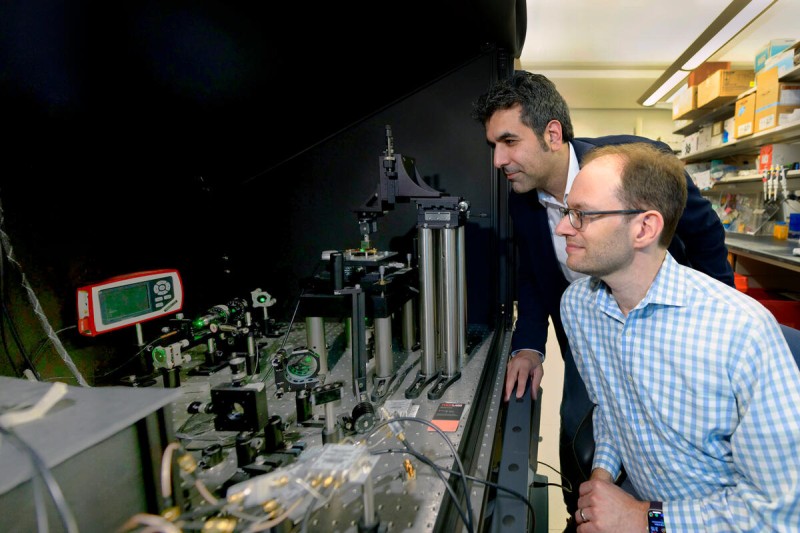
A visionary new approach to solving problems in cancer science is now fully underway at Memorial Sloan Kettering Cancer Center (MSK), as the inaugural class begins the Pat and Ian Cook Doctoral Program in Cancer Engineering. Leading researchers — drawn to MSK by the opportunity to be a part of the first-of-its-kind cancer engineering program — are helping mentor the new students.
Led by co-directors Daniel Heller, PhD, and Kayvan Keshari, PhD, the program offers faculty members the chance to teach and collaborate with promising young scientists at the start of their careers. The researchers will train the students in techniques to build new tools for making discoveries and improving detection and therapies.
“We are seeing the excitement generated by having a dedicated engineering program and the added appeal it holds for top scientists to come to MSK knowing they will benefit from our investment in this emerging field,” says Michael Overholtzer, PhD, Dean of the Gerstner Sloan Kettering Graduate School of Biomedical Sciences.
Four recent faculty recruits to the Sloan Kettering Institute at MSK discuss how the strength and promise of the new cancer engineering program helped inspire them to join the institution at the start of this new era.
Xinbo Yang, PhD: Protein Engineering to Improve Immune Cell Specificity
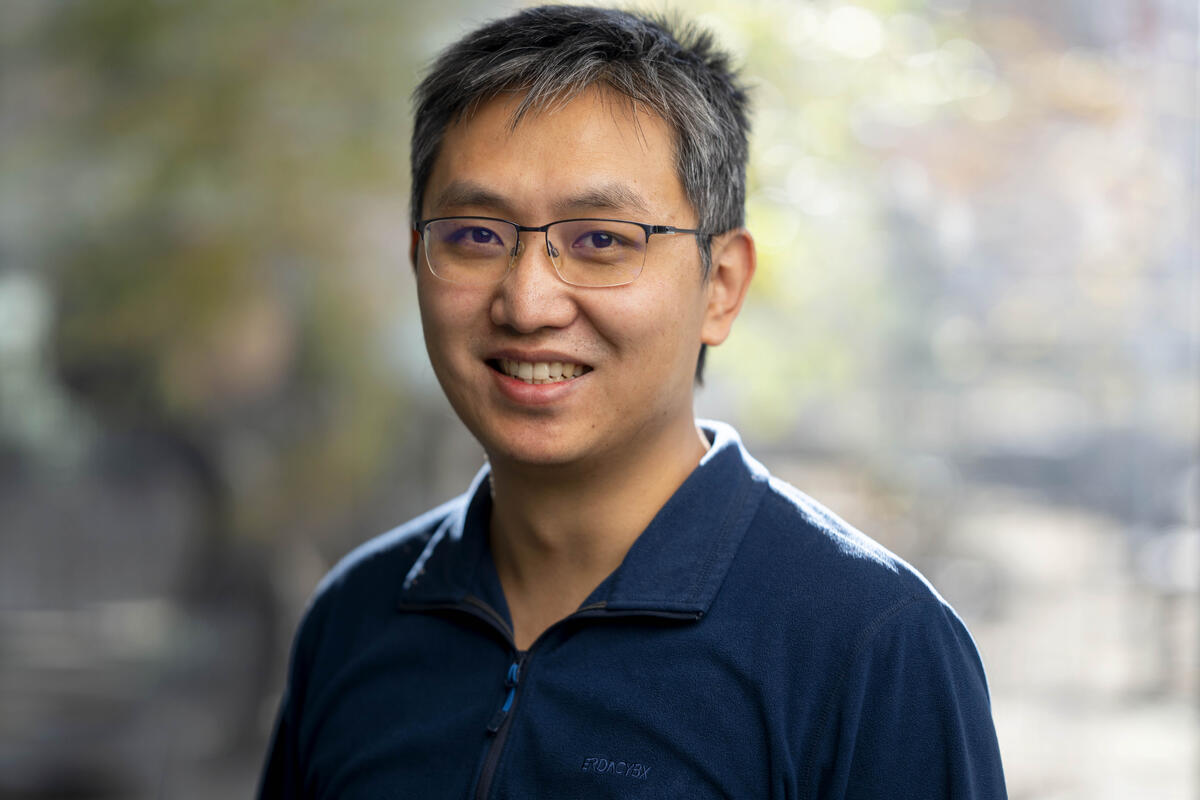
Dr. Yang, a structural biologist and assistant professor in the Molecular Pharmacology Program, came to MSK from Stanford University in October 2023.
His research focuses on how immune T cells distinguish antigens (proteins) that are foreign from those in the body’s own cells. The lab is trying to understand the molecular principles controlling this process and use the information to make more effective protein drugs — genetically engineered versions of naturally occurring human proteins.
Dr. Yang will be teaching a class in protein engineering, starting in December 2024. The students who rotate through his laboratory will use cutting-edge protein engineering techniques to try to create therapies that work as well as the immune system in differentiating between friend and foe. The researchers will glean critical information from MSK’s abundant patient samples and clinical resources.
“I think protein engineering has a huge place in terms of therapeutic development, and I am excited to collaborate with exceptional young scientists who share this interest,” Dr. Yang says. “MSK’s fantastic resources make it possible to translate protein engineering from an academic setting into having a clinical impact on real patients.”
Junhong Choi, PhD: Recording Cellular Events During Development
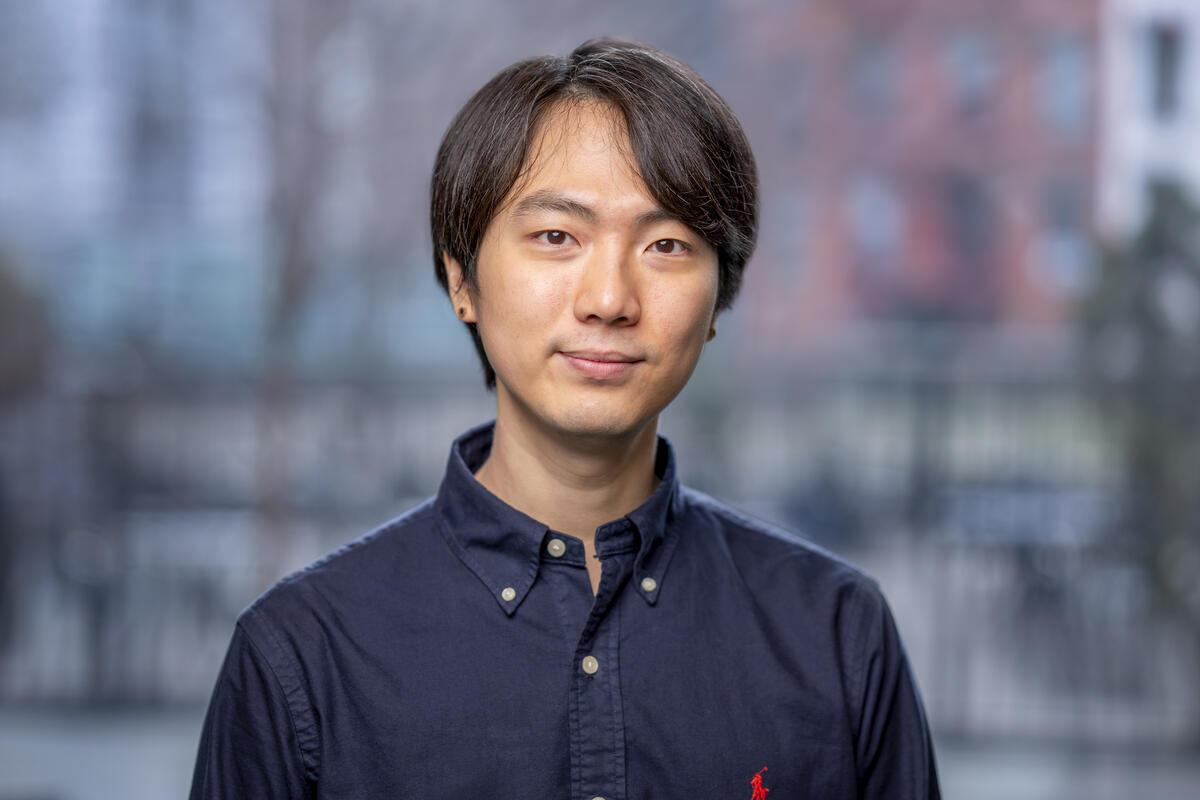
An assistant professor in the Developmental Biology Program, Dr. Choi joined MSK in March 2024 from the University of Washington. His lab uses synthetic biology to understand the process by which cells differentiate into specific cell types with distinct functions during development.
“To understand how different cell types are made, we need to find a way to record a cell’s previous and current states, as well as the order of events that cause these changes,” he says. “It’s really hard to do that using the tools we have right now.”
Dr. Choi has special expertise in using the CRISPR genome editing tool, and he will be teaching a class in genome engineering and genome editing. Students in the engineering program who come through his laboratory will help in his effort to make new tools to record past cellular events — work that should provide fresh insights into cell-fate decisions and support cellular engineering for future therapies.
“I came to MSK because I thought this would be a perfect place to collaborate with other biologists and engineers as we try to use this kind of technology to study how cells determine their fates,” he says. “We will be working with people across different backgrounds, including cancer biologists, computational biologists, and molecular biochemists. The students in the new program reflect that multidisciplinary expertise.”
Joo-Hyeon Lee, PhD: Modeling Lung Regeneration and Disease
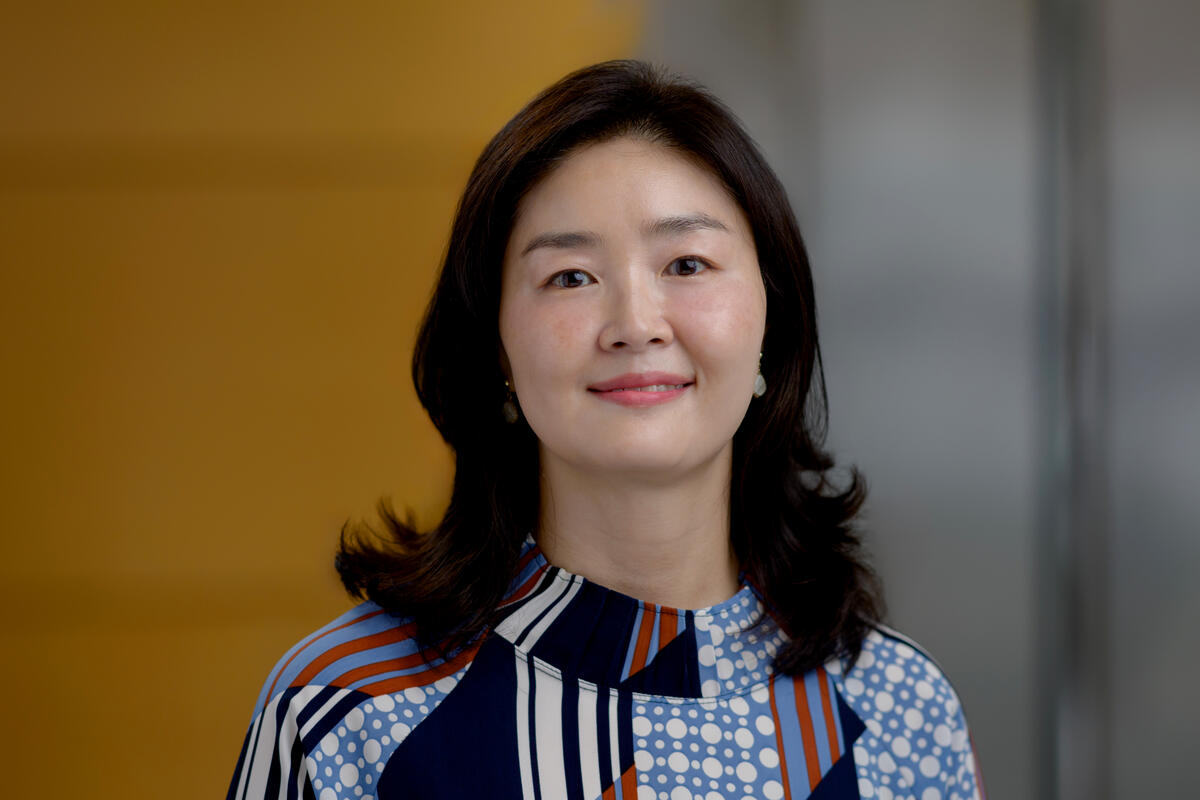
Dr. Lee, who joined the Developmental Biology Program in August 2024 from the Cambridge Stem Cell Institute at the University of Cambridge in the U.K., focuses on lung stem cells to understand the processes by which they generate and maintain tissues and bring about healing. Her research explores how disruptions in these processes can lead to lung diseases, including lung cancer.
“My lab studies how stem and progenitor cells regulate their behavior to form and maintain specific tissues, and how dysregulation of this process can result in disease,” she says. “We will develop new platforms for studying this process, including genetic animal models and multicellular organoids.”
The engineering program will help the lab’s efforts to create the next generation of 3D in vitro multicellular organoid models at tissue scale. This will be combined with tissue engineering, mechanics, computational modeling, tissue scale imaging, and stem cell biology to understand how a single stem cell generates tissue. Dr. Lee looks forward to students in the program helping her with these challenges.
“MSK’s strong point is the great programs they have across a variety of disciplines, with very few barriers between the programs,” Dr. Lee says. “This makes it easy to collaborate on fundamental research questions all the way through to clinical translational science.”
Maria Akhmanova, PhD: Modeling Immune Cell Migration and Invasion
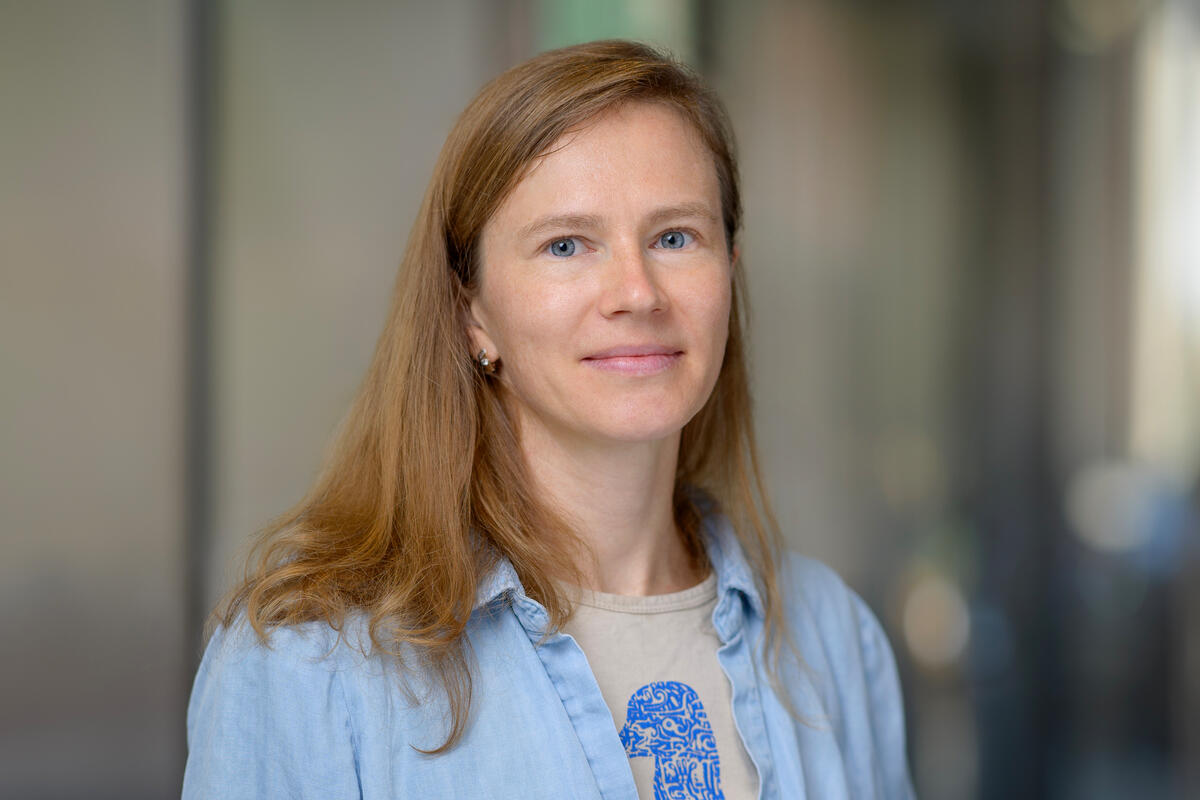
Dr. Akhmanova, an expert in computational modeling, joined the Cell Biology Program in August 2024 from UCLA. Her laboratory focuses on migrating cells — mostly immune cells — that travel to sites of injury or infection. The research investigates the mechanical forces that enable migrating cells to squeeze between tissues and other cells to get to their destination.
“In some diseases, such as solid tumors, they cannot invade the tissue because it is too dense — many times because the cancer cells create an environment that the immune cells cannot penetrate,” Dr. Akhmanova says. “The main engineering problem we will try to solve is what are the mechanical properties of the immune cells and the tumor cells, and how their changes can influence immune infiltration.”
She expects engineering students to help shed light on the most important pieces inside the targeted cells that determine the mechanical properties and how they interact with the migrating cells trying to squeeze in. The lab members will do computational modeling — in effect, creating a digital version of the tissue — to piece together all the mechanical forces at play.
“This is a fantastic place, with researchers who are very passionate about solving scientific questions,” Dr. Akhmanova says. “I noticed that whenever I talked to scientists from the Sloan Kettering Institute, even before coming here. The environment fosters communication and creativity, which makes the institute different. I think that’s why so many discoveries are made here.”


